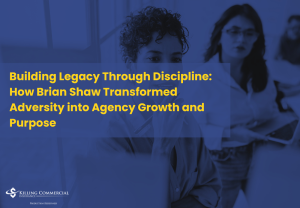
The Power of Patient Prospecting: How Education, Niching, and Mindset Drive Middle-Market Success
Few industries reward consistency, discipline, and patience quite like middle-market commercial insurance. Initially, every producer starts with a different story, background, and path into the business. However, the ones who rise are the ones who learn to embrace the long game. Moreover, while success may take time, those who persevere ultimately reap the benefits. Furthermore, this industry values resilience, and those who remain committed often find themselves achieving great success in the end.







Responses